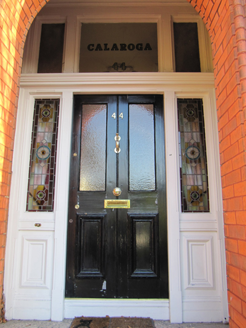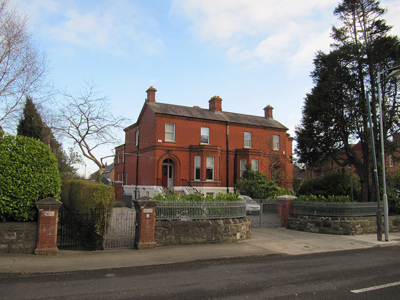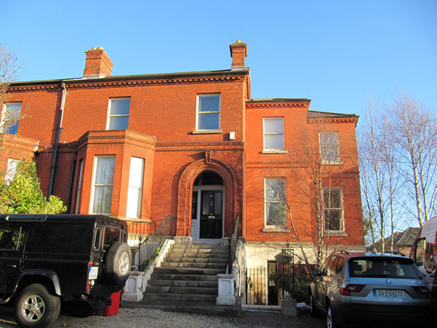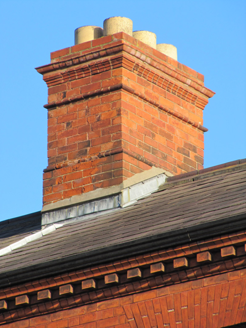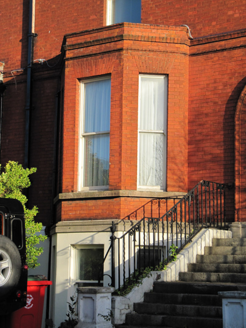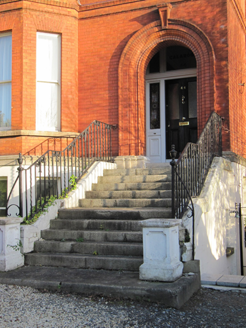Survey Data
Reg No
50030316
Rating
Regional
Categories of Special Interest
Architectural, Artistic
Original Use
House
In Use As
House
Date
1900 - 1910
Coordinates
319553, 236327
Date Recorded
19/12/2014
Date Updated
--/--/--
Description
Semi-detached unmatched pair of double-pile two-bay two-storey houses over basements, built c. 1905, having single-storey canted-bay windows over basements to inner bays of front (west) elevation, No. 44 having rear pile extending to south by two bays, with full-height recessed bay to re-entrant corner and later extension to rear, and both having lower two-storey returns over basements to rear. Pitched natural slate roofs to front pile and returns, hipped natural slate roof to rear pile, red brick chimneystacks with cornices and clay pots, clay ridge tiles, moulded brick eaves courses, and cast-iron rainwater goods. Red brick walls laid in Flemish bond, with moulded red brick stringcourse forming cornices to parapets to front bay windows, moulded render plinth course over lined-and-ruled rendered walls to basement. Square-headed window openings, having one-over-one pane timber sliding sash windows, with some replacement windows to rear elevation, cut granite sills, and with continuous sills to bay windows. Deeply recessed porches with round-headed outer openings having moulded red brick surrounds with terracotta keystones, square-headed door openings with timber panelled doors, plain overlights and leaded sidelights, terrazzo floors, decorative tiles to side walls, and plaster cornices to ceilings. Granite thresholds and flights of granite steps with wrought-iron railings on rendered retaining walls. Set in own grounds with gardens and carparking to front and rear, rubble stone boundary walls, topped with recent railings to house to north. Wrought-iron pedestrian gate and recent vehicular gates to No. 46, each having square-plan red brick piers with pointed capstones, and with recent piers and gates to No. 44.
Appraisal
This pair was built following the lease of the lands in 1898 by Col. Edward Vernon to Dominic Dolan. The lease specified that Dolan was to build three pairs of two-storey over basement villas to the north of 'an intended new road', but it appears from physical similarities that all four pairs had the same builder. This type of speculative development was increasingly popular in Clontarf at the turn of the century, with numerous terraces and groups of houses built to accommodate the middle classes and the well-to-do. The use of bay windows and recessed porches add depth and interest to the elevations, while the use of red brick over render walls and subtle brick embellishments further enliven the facades. Developments in brick-making technologies at the time ensured an affordable supply of well made bricks for decorative effects such as these. The entrances are particularly finely detailed, with glazed tiled walls, terrazzo floors, and leaded sidelights showing evidence of skilled craftsmanship.
